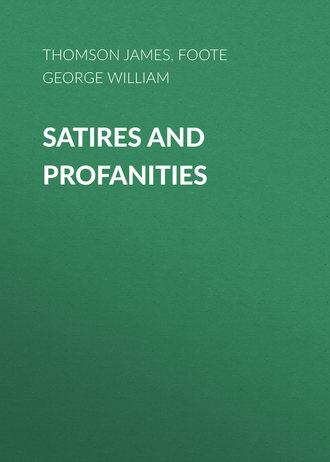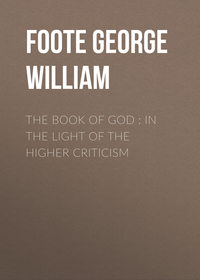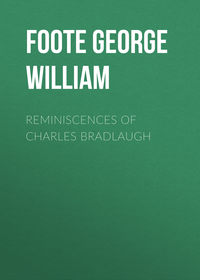
Satires and Profanities
As to the general questions, I will start by avowing frankly my conviction, that, in the present state of England, every thoughtful man who loves literature should rejoice in the advent of any really able book which outrages propriety and shocks Bumbledom, should rejoice in its advent simply and exactly because it does outrage propriety and shock Bumbledom, even if this book be nauseous to his own taste and bad in his own judgment. For the condition of our literature in these days is disgraceful to a nation of men: Bumble has drugged all its higher powers, and only the rudest shocks can arouse them from their torpor. We have still, indeed, by the inscrutable bounty of nature, three or four great writers, the peers of the greatest in Europe; out they stand like so many forest-trees, antique oaks of Old England, in a boundless flat of kitchen-gardens – cabbage and lettuce, radishes and onions, and all the many-leaved “pot-boilers,” fit only to be soddened and seethed in a pot, and “to pot,” thank goodness, they all quickly go.
Our literature should be the clear and faithful mirror of our whole world of life, but at present there are vast realms of thought and imagination and passion and action, of which it is not allowed to give any reflex at all, or is allowed only to give a reflex so obscure and distorted as to be worse than none. But, it may be objected, suppose Satyrs come leering into your mirror and Bacchantes whirl before it? I answer that the business of a mirror is clear reflection: if it does not faithfully image the Satyr, how can it faithfully image Hyperion? And do you dread that the Satyr will be preferred to Hyperion, when both stand imaged in clear light before us? It is only when the windows are curtained, when the mirror is a black gulph and its portraitures are vague dark shadows, that the beautiful and the noble can pass undistinguished from the hideous and the vile.
If, indeed, the realities not reflected became unrealities, were annihilated, then there would be some sense in veiling those portions of the mirror in front of which certain features of our life are exposed. And if that which sees not could not be seen, it would be very sensible of the hunted ostrich to hide its head in the sand. But we all know that in darkness what is filthy and vile grows ever filthier and viler, what is pure and sweet sickens and decays.
“We have left undone those things which we ought to have done; and we have done those things which we ought not to have done; and there is no health in us.”
We have suppressed mention of all facts which Bumble would fain ignore, and utterance of all opinions likely to disturb his sacred peace; we have canted enough to nauseate the angels, and have continually lied for God as for a man to pleasure him; so our popular books are fit for emasculated imbeciles, the Times is our leading journal, and the Daily Telegraph boasts the largest circulation in the world! And in the meanwhile the police-reports are full of putrid flesh, all the blue-books are crammed with statistical dry bones; flesh from the carcases and bones from the skeletons in that mass of death and corruption under our imperial whited sepulchre.
I do not complain of the kitchen-garden literature; many of the vegetables are very wholesome and savory in their season, very good for eating to-day and forgetting to-morrow; I complain that in the interest of kitchen-gardens the rearing of all grander and loftier vegetation, the growth of secular forest-kings has become almost impossible in England. The stupidest popular book would not be popular did it not find a large number of people still more stupid than itself, to whom it is really entertaining and instructive. These stupid people one does not blame, one can only pity or envy them according to one’s mood. But what shall one say of that large number of educated people who are not stupid, who are familiar with continental literature; who yet, if an English book appears advocating ideas such as they have been delighted with in a French or German dress, feign astonishment and horror, and join with all the poor little curs of Bumbledom in yelping and snarling at it? These men who know well what they are doing are the accomplices of Bumble who does not know what he is doing, who fondly fancies that he is doing something very different, in starving on thin diet and stupifying with narcotic drugs the intellect of our nation once so robust and active; and assuredly if the process goes on much longer we shall come to rank mentally as a third-rate Power in Europe.
No intelligent man in England, without (which is a contradiction in terms) his ideas are exactly coincident with the non-ideas of Bumble, or without he is rich and independent, can afford to devote himself to honest treatment of any great religious or social, moral or philosophical question. If treated in a book, he must himself pay the expense of publication; if treated in an article, not even by payment could he get the portals of any popular periodical to open unto him. For periodicals – newspapers, magazines, reviews – are the Fools’ Paradise of the commonplace, the mediocre, the orthodox, the respectable. As the strength of a chain must be measured by its weakest link, so the thought of a periodical must be measured by the thought of its most imbecile subscribers. A periodical to live must be a commercial success; the faintest thrill of new ideas would affect its circulation by shocking off some of its regular readers; it must suit its articles to the size of its customers – a very little hat for a very little head, a very little thought for a very little brain. Thus, though in thinking of their criticisms I spoke so contemptuously of our critics, I do not doubt that many of them are much wiser than their articles. The most honest of them must live by their pen, so they do not attempt to tell the whole truth though they will not tell a lie; many, however, undoubtedly are as apt for the sin of commission as for the sin of omission.
A noteworthy instance occurs to me as I write. An eminent English author, in some respects even a great author, complained that in our country no one since Fielding had dared to attempt the full and faithful portraiture of a man, and he set himself to the task in a work published by instalments. As he entered upon certain phases of common virile life, the circulation of the serial began to decrease. This author was eminent, well-off, much more honest and wise and brave than ninety-nine authors in a hundred: of course, having begun his work he would honestly finish it, he would not only tell the truth and nothing but the truth, he would also tell the whole truth? – he quietly left off painting the features objected to, finished such as were agreeable to the public, and said with a cynical scorn (flavored perhaps with some bitterness of self-scorn), “So you don’t want to see and hear the whole truth? Very well!” This author was revered by the great and noble-hearted Charlotte Brontë; this author was *Thackeray, strong with all the prestige of Vanity Fair; he could not think of continuing a course injurious to his “circulation,” so “Pendennis” is not almost worthy (as it might, else have been) to stand beside “Un Grande Homme de Province à Paris” of Balzac.
When such is Thackeray, what must be Gigadibs?
If I write this rather strongly it is because I feel that I am writing in the interest of strength and health and purity and freedom, at a time when the mass of our literature is infected with servile weakness and disease and that “obscenity, which is ever blasphemy against the divine beauty in life.” For all obscene things batten on darkness, and light is fatal to them. But for the Bumble who rules over us, the naked beauty is obscene and the naked truth is blasphemous; he thinks that the Venus de Medici came out of Holywell Street, and is inclined to believe that all the fossil records of geology were forged by the Devil to throw discredit upon the book of Genesis. One cannot without a keen pang of shame and rage think of what we are when one remembers what we were, when one recalls our old and glorious literature, in the wide world unsurpassed; our literature noble and renowned, ever most glorious when most manly and daring.
GREAT CHRIST IS DEAD
(1875.)
We have all heard the wonderful story, recounted by Plutarch in his treatise on the Cessation of the Oracles, how, in the reign of Tiberius Cæsar, a ship sailing from Greece to Italy was becalmed for the night at the islet-rock of Paxus in the Ionian Sea, between the Echinades and Ithaca, when a loud and terrible voice from the land called Thamous the pilot. And he having responded at the third appeal, “I am here; what would you with me?” the voice, grown yet louder and more terrible, commanded him to announce on arriving at Palodes that Pan the Great was dead. Accordingly, when the vessel reached this place, whose site I believe the learned have not yet fixed, Thamous stood on the prow and lifting his voice shoreward cried, “Pan the Great is dead!” – whereon were heard great moanings and lamentations, mysterious and multitudinous. Not having Plutarch at hand, I have refreshed my memory from Rabelais, who repeats this well-authenticated story by the mouth of Pantagruel, in the twenty-eighth chapter of the fourth book of his inestimable work, following soon on that tempest of all tempests wherein Friar John and Panurge so variously distinguished themselves. The good Pantagruel goes on to expound the story after his own manner, thinking that it referred not to the heathen god Pan, but to our Lord and Savior, Jesus Christ, “ignominiously put to death by the envy and iniquity of the pontiffs, doctors, presbyters, and monks of the Mosaic dispensation…”
For with good right may he in the Greek tongue be called Pan, seeing that he is our All; all we are, all we live, all we have, all we hope, is him, in him, of him, by him. He is the good Pan, the great Shepherd… at whose death were moanings, sighs, trepidations and lamentations in all the machine of the universe, heavens, earth, sea, hells. With this my interpretation the time agrees. For that most good, most great Pan, our only Savior, died at Jerusalem, reigning in Rome Tiberius Caesar. – Pantagruel, these words said, rested in silence and profound contemplation. A little while after we saw the tears rolling from his eyes, large as ostrich eggs. I give myself to God if I lie in a single word.” Notwithstanding the thrilling pathos of this close, and my deep reverence for Rabelais, with whom no commentator in holy orders known to me can be compared, except Dean Swift, I am inclined on this point to follow the ordinary opinion that Pan the great god whose death was thus miraculously announced was the Pan of the heathen Greeks. Christ had died, but only pro tem; had descended into Hell, but with a return ticket, and simply to harry that realm of Old Harry; in three days he had risen from the dead, in forty more ascended into Heaven; his reign had begun and the reign of the old gods was ended; the spirit was exalted ana the flesh brought low, this world and life were contemned for the life and world to come; Nature, the All, the great Pan, was annulled, and the Supernatural Nothing throned supreme. The poets have chanted this momentous revolution according to their religion, their phantasy, or their mood. Milton in his Hymn on the Nativity shouts harsh Puritanical scorn on the oracles stricken dumb, and the deities overthrown. Shelley in a magnificent chorus of “Hellas,” “Worlds on worlds are rolling ever,” contests not the justice of their doom, while in the final chorus he predicts the same doom for their conqueror in his turn, In our own day Mr. Swinburne in the “Hymn to Proserpine,” and elsewhere, has bewailed the dead immortals, with nothing but aversion and contempt for the pale Galilean, the “ghastly glories of saints, dead limbs of gibbeted gods.” Leopardi an early poem “To Spring,” beautiful but not of his deepest, regrets the banished divinities, and since the halls of Olympus are void, appeals to Nature to restore to his spirit its first fire, if she indeed lives. Schiller in his “Gods of Greece” passionately laments them; and Mrs. Browning more passionately answers him, crying, “God himself is the best Poet, and the Real is his song and the Real we accept perforce in its fulness, but discern not how it can derive from an unreal God. Novalis in his “Hymns to the Night” laments with Schiller the unsouling of Nature, “bound in iron chains by arid number and rigorous rule;” but goes on to celebrate the resurrection of Humanity in Christ. Heine in his. “Gods of Greece,” after declaring in his wild way that he has never loved the old deities, that to him the Greek are repugnant, and the Romans thoroughly hateful, yet avows that when he considers how dastardly and windy are the gods who overcame them, the new reigning sorrowful gods, malignant in their sheep’s, clothing of humility, he feels ready to fight for the former against these. This change of the celestial dynasty is indeed a favorite theme with him. Elsewhere he pictures the Olympians holding high revelry, with nectar and ambrosia, with Apollonian music and inextinguishable laughter, when suddenly a wretched Jew staggers in, his brow bleeding from a crown of thorns, trailing on his shoulder a heavy cross, which he heaves upon the banquet table; and forthwith the revel is no more, the divine feast disappears, the everburning lights are quenched, the triumphant gods and goddesses vanish terror-smitten, dethroned for ever and ever. And again, in his incomparable “Gods in Exile,” he tells us what became of these dispersed Olympians during the Dark Ages, in the thick night of the noontide of Christianity; how they were transformed from celestial to infernal by the monstrous superstition of that baleful era; as we find the hoofs and horns of Pan transferred to the Devil himself; as we find Venus in that legend of Tannhauser which has fascinated so many poets, as well as great Wagner, —
Vénus, ma belle déesse,Vous êtes diablesse!More than eighteen hundred years have passed since the death of the great god Pan was proclaimed; and now it is full time to proclaim the death of the great god Christ. Eighteen hundred years make a fairly long period even for a celestial dynasty; but this one in its perishing must differ from all that have perished before it, seeing that no other can succeed it; the throne shall remain void for ever, the royalty of the Heavens be abolished. Fate, in the form of Science, has decreed the extinction of the gods. Mary and her babe must join Venus and Love, Isis and Horus; living with them only in the world of art. Jesus on his cross must dwindle to a point, even in the realms of legend under Prometheus on Caucasus. For ages already the Father has been as spectral as Jupiter; for ages already the Holy Ghost has been but the shadow of a shade. And the last, not least, member of the Divine Royal Family, Satan the Prince of Darkness, Prince of this World, and Prince of the Powers of the Air, is no more alive than Pluto, who also was born brother to the Monarch of Heaven. The Hebrew dynasty of the gods is no more; it has done much evil in its long sovranty, which we will try to forget now it ceases to reign; it has done some little good, whose remembrance we will cherish when it is sepulchred, Christ the Great is dead, but Pan the Great lives again, as Mr. Maccall told us in some lines published in this paper several years ago. Pan lives, not as a God, but as the All, Nature, now that the oppression of the Supernatural is removed. I may be told that Christianity is yet alive and flourishing, that its priesthood and its churches hold possession of Europe and America and Australia. So the priesthood and the shrines of the Olympians kept possession of the Roman Empire centuries after the crucifixion of Jesus. When the spirit of a faith has departed, that faith is dead, and its burial is only a question of time. When the noblest hearts worship not at its altars, when the most vigorous intellects abandon its creeds, the knell of its doom has rung. At the risk of being thought bigoted or prejudiced, I must avow that to my mind the decomposition of Christianity is so offensively manifest and advanced, that, with the exception of a very few persons whose transcendent genius could throw a glamor of glory over any creed however crude and mean, and whom I recognise as far above my judgment, I can no longer give my esteem to any educated man who has investigated and still professes this, religion, without grave deduction at the expense of his heart, his intellect, or his conscience, if not of all three. Miraculous voices are not heard in these days; but everywhere myriads of natural voices are continually announcing to us, and enjoining us to announce to others, Great Christ is dead!
RESURRECTION AND ASCENSION OF JESUS
(1876.)
In reviewing Mr. R. H. Hutton’s Essay on “Christian Evidences, Popular and Critical,” I was obliged to follow his lead, joining issue on such pleas as he put forward. Thus with regard to the resurrection of Jesus, as Mr. Hutton adduced what he thought confirmatory evidence only from the New Testament itself, I confined myself to showing or attempting to show that such evidence is unsubstantial. But I could not consider this argument adequate or conclusive, for there are large general considerations of incomparably greater importance which it leaves out altogether. It is as if a case ruled by broad principles of equity were to be decided on the narrowest technical grounds. Therefore, while confident that even on these grounds the case must go against the Christian believer, I wish to add a few words on its wider relations, in order that the decision may be established, not merely by the letter of the law, but also by the spirit of justice.
We leave thus the torturing of texts in the dim cells of the theological Inquisition, a process by which almost any confession required can be and has been wrung from the unfortunate victims, and emerge into the open daylight of common-sense and reason. And here I venture to assert that if the story of the resurrection and ascension were recorded of any other than Jesus in any other sacred book than the Bible, Mr. Hutton and all other intelligent Christians would not only disbelieve it, but would not even condescend to investigate it, condemning it offhand as too preposterous to be worthy of serious attention. Thus, what Christian has ever deigned to examine critically the marvels affirmed in the Koran, such as Mohammed’s visit to heaven; although the Koran can be traced far more surely to the Prophet of Islam than can the Gospels to their reputed authors, and this Prophet bears a far higher character for truthfulness than do the early Christians? Nay, what Bibliolater has ever seriously weighed the evidence for the miracles of his fellow Christian the great St. Bernard; such as those which are minutely related and solemnly attested by ten eye-witnesses, men well known and of unimpeached veracity, and which are thus infinitely better attested than any miracle in the Bible from Genesis to Revelation?
Your enlightened Protestant simply shrugs his shoulders at all such stories, and says with a superior smile: “Of course, mere imposture and collusion, or superstition and delusion; no sensible man can afford to waste his time in weighing that sort of stuff; we don’t think twice before determining whether the impossible ever really occurred.” How, then, can this enlightened Protestant receive without question the miracles of the Jewish books while rejecting without question all others? We have seen that it cannot be because of any superiority of evidence for the former, since the evidence for the latter is in many cases infinitely greater and better authenticated, and since he does not attempt to weigh evidence before either accepting or rejecting, though he may seek evidence and argument to confirm what he has already given himself to believe. He accepts the Jewish miracles simply because they have come down to him, through many generations of his forefathers, invested with a glamor of sanctity, and he regards them with the eye of faith which sees, and sees not, just what it wishes; he rejects miracles not in the Bible because they come to him without any hallowed associations, and he regards them with the eye of reason which beholds the plain facts before it, and neither wishes nor is able to avoid beholding them.
It is worth noting that while our Christian advocates insist with all their might, such as it is, upon the resurrection of Jesus, they willingly pass over as lightly as possible, if they do not altogether ignore, a similar miracle guaranteed by the very same authority. In Matt, xxvii., 52, 53, it stands recorded among the marvels following the death of Jesus: “And the graves were opened; and many bodies of the saints which slept arose, and came out of their graves after his resurrection, and went into the holy city, and appeared unto many.” The reader of Shakespeare will remember the prodigies anterior to the death of Julius Cæsar when —
“The sheeted deadDid squeak and gibber in the Roman streets.”This prodigal multiplicity and superfluity of resurrections seems to have been not a little embarrassing to modern Christian champions, though doubtless it did not in the least trouble the primitive non-scientific believers, to whom nothing was more natural than the unnatural, including the supernatural and the infranatural. An apologist of our days who must affirm the one resurrection, seeing that his whole religion is based upon it, and who, though valiantly defying science, seeks to conciliate historical possibility, finds his task quite heavy enough in accounting for the facts that the risen Jesus “was seen of above five hundred brethren at once,” and yet that no record of his rising can be found beyond the limits of the New Testament. But the difficulties of the poor apologist are enormously increased if he must further contend that many bodies of the saints came out of their graves, and went into the holy city, and appeared unto many, and still there is no external evidence. We are surely at the utmost limits of the possible in conceiving that Jesus could appear unto five hundred of the brethren at once (there is no hint elsewhere that he had so many permanent followers in his lifetime; in Acts i., 15, we find that there were about one hundred and twenty gathered after the ascension), without the priests and the Roman officials hearing of the apparition and investigating it. But if many others rose from their graves and appeared to many, it is absolutely impossible that anyone in Jerusalem could be ignorant of the miracle; equally impossible that Pilate and his officers did not investigate it, and equally impossible that finding it real he did not report it with the evidence to Rome, for the Empire was a thoroughly organised State, and the Romans were a thoroughly practical and business-like people. Once in the imperial archives, the record of the miracle would have spread everywhere; all subsequent historians would have related it, all subsequent writers referred to it. So it is no wonder that, recoiling from these manifold impossibilities, the Christian advocates prefer to dwell on the one resurrection as if it were unique, and avoid dwelling on the others that by the very same testimony immediately followed it. It is very significant that neither in the Acts nor in the Epistles is there any allusion to these resurrections. When Peter and the others were preaching the resurrection of Christ, why did they not adduce and produce some of these many, risen saints, whose visible, tangible, living and speaking evidence would have been irresistible?
Just as the resurrection of Jesus could be accepted without misgiving by the non-scientific early Christians, to whom miracles appeared among the most frequent occurrences of life, so could the ascension. Their earth was a plane, vaulted by the sky, lamped by the little sun and moon and stars; above this vault was Heaven, where their God dwelt enthroned; they knew nothing of the law of gravitation; their Christ, standing in the flesh on the Mount of Olives, floated up through this vault to sit enthroned beside his Father in the most natural supernatural manner. We can conceive and sympathise with this simple faith; but it is hard to conceive and sympathise with the blind faith, which seems wilfully blind, of the modem educated Christians. It has been often remarked that Copernicus and Kepler and Newton have destroyed all the old mythologies, including of course the mythology of both the Old and New Testaments. With the earth no longer the universe of mortal life, between a Heaven above its domed firmament and a Hades like a vast dungeon beneath, but a quite infinitesimal grain of sand involved by an infinitesimal drop of dew, floating and revolving in an ocean of space boundless in heighth and depth and breadth, amidst innumerable other spherules, most of which visible are very much greater than itself, and at inconceivable distances from it; with man no longer the lord of the creation, for whose service all things were made, but an animalcule inexpressibly small, living for a moment inexpressibly brief, with limitless time before his beginning and limitless time beyond his end; the Christian mythology and system, among others, because ineffably absurd. Where is the Heaven for its God? where the Hell for its Devil? Where is above? Where beneath? Whence came the winged angels, with their wrings which would not enable them to fly?









